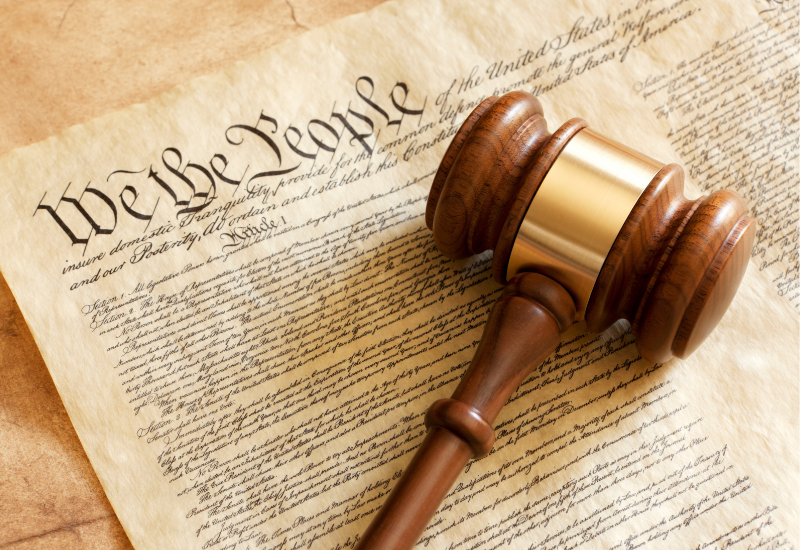Understanding Your Rights: An Overview of Unlawful Search and Seizure
Written by Cooper & Friedman PLLC on May 31, 2022

The U.S. Constitution’s Bill of Rights provides Americans with an extensive list of the rights and protections afforded to them by the government. These rights and protections are foundational to our society, informing the actions of our law enforcement and courts.
The Fourth Amendment specifically protects Americans from “unreasonable search and seizure,” but what exactly does this mean? Keep reading for information on your rights under the Fourth Amendment, what constitutes unreasonable search and seizure, and how to tell if you or someone you know has fallen victim to violations of the Fourth Amendment.
The Fourth Amendment
The Fourth Amendment establishes “The right of the people to be secure in their persons, houses, papers, and effects, against unreasonable searches and seizures.” In practice, this means that without a justly obtained search warrant, law enforcement is not allowed to search an individual, their home, or their belongings, such as cars, purses, or bags. There are some notable exceptions to this rule, which are discussed below, but for the most part a search of your person, home, or belongings is considered unreasonable and highly illegal without a warrant.
Exceptions to the Fourth Amendment
Probable cause is a major exception to the Fourth Amendment. Basically, if law enforcement has solid evidence that a crime has likely been committed, is in the process of being committed, or will be committed soon, they are entitled to search suspects, their homes, and their belongings without a warrant. This exception is important in ensuring police are able to act fast to prevent dangerous situations without the obstacle of obtaining a search warrant. However, probable cause cannot be applied to every situation, and is constantly examined by the courts to ensure it is being used by law enforcement correctly. Notably, the presence of exigent circumstances (for example the chance of danger or violence if a search is not conducted immediately) is often required alongside probable cause in order to justify searches without a warrant. See this article published by the Legal Information Institute at Cornell University for more details on probable cause and its application.
Other exceptions to the Fourth Amendment exist depending on the location of the search and other case-specific circumstances. For example, searches without a warrant are often permitted by the courts if they happen to occur on school property. Also, by consenting to a search, an individual waives their protections even in the absence of a warrant. For a detailed outline of exceptions to the Fourth Amendment, see this document published by the United States Courts.
Violations of the Fourth Amendment
Unfortunately, for many reasons, the Fourth Amendment is often violated by law enforcement, resulting in the wrongful arrests of Americans. For an example of a Fourth Amendment violation, read this story about how a Wisconsin man was illegally detained as a result of an unreasonable search. If you or someone you know has been illegally searched or arrested by law enforcement, then it is important to seek out legal counsel as soon as possible. A good attorney can evaluate your situation and provide a solid legal strategy moving forward. In many but not all cases, citizens affected by illegal search and seizure are entitled to significant compensation. Knowing and understanding your rights is always a solid foundation in protecting yourself from wayward law enforcement, but in these complex cases competent legal representation is a necessity.
If you or someone you love has fallen victim to illegal search and seizure in the state of Kentucky, the experienced team at Cooper and Friedman PLLC is here to help. We have decades of experience fighting for the rights of victims throughout Louisville, Kentucky and across the entire state. We handle your case personally and you can always be sure that our attorneys will be responsive to your calls and inquiries. For additional information, or to schedule a free case consultation with an experienced injury attorney, give us a call at 502-459-7555 or contact us online.

